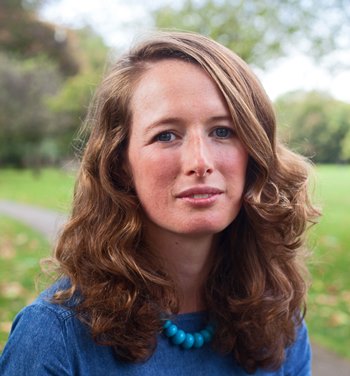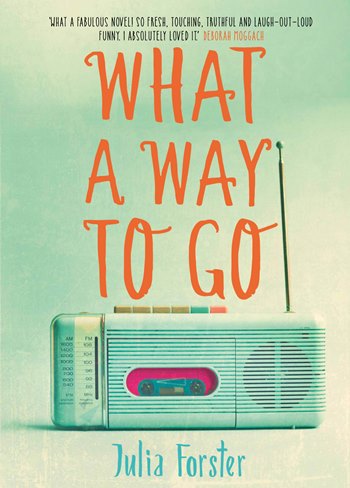Experienced on both sides of the slushpile, Julia Forster offers her advice to aspiring writers.

I've worked in publishing since the age of 20 in a variety of roles, but perhaps the job I enjoyed most was working for two years as an assistant at a literary agency. Not only because the agent and I shared the same taste in books, but also in strong coffee and chocolate.
I had decided to pursue a job in an agency because I wanted to not only learn the rudiments of the trade, but also because I wanted to witness, first-hand, authors’ experiences of gestating a book from its embryonic beginnings to eventual publication.
One of my daily jobs was to assess the unsolicited manuscripts. We had a template rejection letter which I would sometimes annotate briefly. Occasionally we’d ask for the full manuscript. (In one instance, we asked the author for his full manuscript, then read it and rejected it, though I did eventually go on to marry the author – but that’s a story for another blog!)
Some authors didn’t help their cases by not adhering to some basic guidelines and by sending scripts in a genre that the agency didn’t represent. You can find listings of what agents look for on agency websites or in the Writers’ & Artists’ Yearbook. Other authors resorted to gentle bribery: several sent me teabags paper-clipped to their manuscripts…

I didn't write my novel until I’d moved to Wales and had two children. But what I learnt in that job at the agency did come in handy when I was ready to submit my debut novel. Namely:
· Do your research before you submit: check individual agents’ lists to gauge their taste, and the agency’s advice for what to submit. I forced myself to cut my synopsis to just two pages and kept my cover letter to one page.
· Stick to a standard font. Again, check the agency websites for presentation preferences, but I like to use a serif font, 1.5 spaced.
· Do give a flavour of the voice in the synopsis and remember that you want to include the beginning, middle and end. You don’t need to worry about spoiling the plot; the agent will want to know how it finishes.
· Play a little psychological trick on yourself: submit your cover letter, synopsis and sample to yourself, via email. I guarantee you’ll find something you want to change that you won’t have seen in drafting your submission.
· Read your work aloud; the ear spots errors that the eye doesn't see.
But it’s all very well to talk about how a novel finds its way into a literary agent’s inbox, but in all honesty my biggest struggle was to figure out how to begin to write my novel…
I circled around starting it for over a decade, making many false starts, hitting several brick walls. I failed plenty. And repeatedly.
For example, before I worked at the literary agency, I’d spent three months living in Brooklyn researching a novel set in the United States and Italy. Fast forward six months, and I did the equivalent of emailing myself: I went on a short walk and gave myself some tough love. I was brutally frank in my self-talk. I realised that I’d sucked all the oxygen out of the idea by over-exposing it.
While the book had a neat concept, in truth it had remained a fiction between my ears. I had very little to show for my research trip: I’d not read very much, and I’d written even less. It had been a fun ethnographic experiment to undertake – especially in my early twenties – but there was no novel to show for it. It was a hard (and expensive) lesson to learn.
My next step was to shrink the canvas. Instead of setting my book in New York and Venice, I lowered by ambitions somewhat, and set it in Northampton and a tiny Warwickshire village where I’d grown up. This book was to be an autobiography. It took me one year to write the first 80,000-word draft and another five years to accept that, while I had proven to myself that I could write a full-length work, this wasn't the one that would find its way into print.
The reasons here were three-fold: nothing happened to me; nobody knew who I was and – perhaps most crucially of all – it wasn’t very good.
In 2011 I applied for a Literature Wales Writers’ Bursary and received just over £1,000 to pay for nursery fees to finally wrestle a novel into submission. Two days a week for six months I had a clear six-hour child-free window to glue my bottom to the seat and write. No excuses.
It turned out that a vote of confidence was just what I needed. What a Way to Go, my debut novel, was published by Atlantic Books in January 2016 and was the net result of receiving that little financial fillip.
The book’s title seems somewhat prescient now: I went a very, very long way to circle back to a brief I’d been given, aged 19 while still a student at university. The author Russell Celyn-Jones asked, in a workshop for undergraduate creative writing students of which I was one, “to write about something traumatic.” He gave us five minutes. I wrote twelve sentences.
Twenty years later, and I feel like I've finally answered his brief.
So, I ask of you: what five-word brief do you dare to give yourself now? You can take five minutes - or twenty years - to respond. Go!
Julia Forster lives in Machynlleth with her family and works for Literature Wales on the writers’ bursary panel. Her debut novel, What a Way to Go was published in January 2016 by Atlantic Books. You can follow Julia on Twitter and visit her website here.
Comments